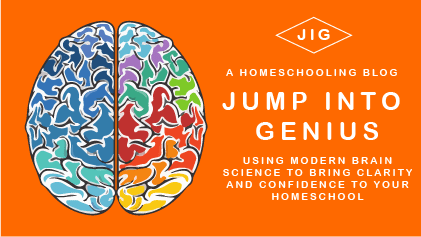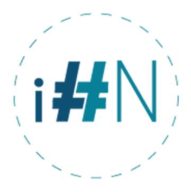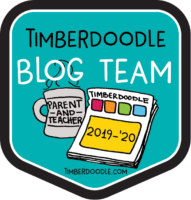As the amount of information available to everyone’s fingertips has spread, so has the idea that kids need to learn more stuff. The problem with this is that there is only so much time in a day. Only so much power in the brain for intense sustained attention. Also, there is a real need to spend time in reflection and play to let ideas ferment and seep into the deep recesses of our amazing brain.
We cannot keep cramming more content into our kid’s brains without dire consequences. The most obvious being burnout and hatred of school and too often, by extension, a lack of will to learn. How many students do you know who are alive with vibrant excitement to learn new things? I think a big overlooked root of this problem is that they are experiencing perpetual information overload. Too much is being introduced too fast, and much of it is disconnected from any immediate experience of the child.
It is time to save our children from this glut of information overload. But how? What do we drop? Don’t our kids need to know all the information to be competitive in this new world?
We can get balance, and time for play, and really smart kids. First we need to differentiate between skills and content. Then we need to take a content chill pill. We need to understand that the content will always be there, right at our children’s fingertips. However, if we don’t provide them with skills, they will never know how to use and understand that content. Also, if they do not go through the experience of practicing skills they are not good at, and discovering that they will improve and get better as they practice, they will not develop the mindset to tackle new skills as adults. They will be stuck in the mindset of thinking they either can or cannot do something. They will not learn to learn.
Skills are things you need to practice to achieve mastery. Reading is a skill, writing is a skill, and math is a skill. Learning a different language is a skill. Learning to ride a bike is a skill. Learning ballet is a skill. Skills need to be practiced frequently. As you practice, the skill becomes easy and fun, and you can keep building on the skill while enjoying the time you spend practicing.
It is never too early to master a basic part of a skill and feel that flood of confidence that you can do it. Such as when a student of an instrument learns their first song. This small mastery spurs on the desire to keep going and learn more. It also often facilitates play, when you use and practice the skill just for the sheer joy of it.
Content is a different beast. Content is learning information about things. Learning about people, places, and events in history is content. Much of science is taught as content, although good curriculums and teachers also teach skills such as observation and record keeping. We often put content into skills. Which literature book are we making kids read? What subject are we making them write about? Content can make practicing skills more interesting. Yes, some basic content should be taught. Yet we cannot let content take over the curriculum.
In order to bring up capable kids we cannot skimp on skills. Too often, I fear skills are the first thing we cut in our rush to cram more into their brains. They need time to read for assignment and pleasure. They need time to write for assignment and pleasure. They need time not only to complete their math lessons, but to play with numbers.
We have to keep the skills strong. Without basic skills they will not feel competent (for good reason). They will not be able, as adults, to study and learn whatever they love. Lacking basic skills they will be trapped and deprived of knowing what they can achieve.
There is more information available than it is realistic to expect kids to learn. We can make content interesting, we can teach in depth, we can make it fun. The best part is, we can also be practicing reading, writing, and math while we learn these content subjects. But we have to do it that way on purpose. We have to purposely think about the skills our children need to be practicing and weave them into the content that we feel is important for them to know and understand.
We must stop giving in to content mongering. Overload and shut down, this is what happens to our kids when we try to cram in too much content.
So when we decide there is something new kids must learn, we should hesitate. We should reflect on what they are learning already. Is the new thing so valuable that it should replace something else? We cannot treat the education of a child as if it is something that cannot possibly get too crowded. As if it is okay to add more and more without lasting detrimental effects. Can we eat more and more without negatively affecting our health? Can we spend more and more and maintain financial health? Can we take more and more medicine without harm? As in all other areas of life, the amount of input cannot be infinite.
There is this thing called time. When we insist that more time is spent on content, we often take time away from skills, instead of incorporating skills. (Some of the first skills neglected are physical skills and artistic skills.) Skills come first. If our kids are skilled readers, writers, and mathematicians, will the world not be open to them? Will they not be able to find and learn any content they choose? Will they not be able to study and understand and communicate understanding in any subject? Is not the point of education to prepare them to be able to be successful once they find their passion and purpose?
Or are we trying to tell them what they should care about by manipulating content? (I think we have all seen many examples where this is exactly the point of a curriculum.)
Will students be more prepared for this new world of information if we let practicing skills fall by the wayside to make room for content? What is the point, when content is so readily available?
Here are some other things we may lose when we force feed too much content on children.
Time for reflection, boredom, and creativity.
Time for play, art, and doodling.
Time to practice skills in all areas, including academic, physical, and musical.
(For more information about these area’s see my post http://jumptintogenius.com/the-ancient-greeks-way-to-educate/.)
Let’s step back. Accept the fact that we live within the dimension of time, and realize that to live within the limits of time we cannot add without subtracting. What is worth giving up? When we forget this, we subtract without thinking and acknowledging what we are giving up.
So next time you are faced with a great idea to add to your child’s education. Stop. Think. Decide consciously if it is worth subtracting something already present.


